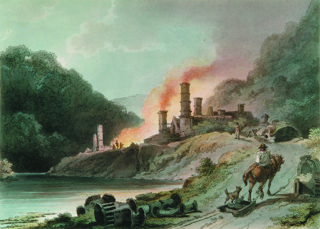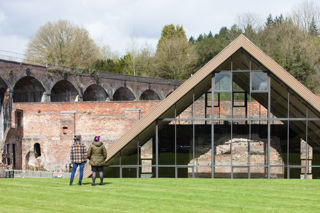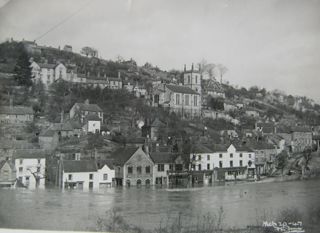What was the Industrial Revolution?

What was the Industrial Revolution?
The Industrial Revolution was a period of massive change in British history which saw unprecedented technological advances, population increase and social change. Between roughly 1750 and 1900 a number of significant innovations occurred which caused a period of change unlike anything that had seen before.
The Ironbridge Gorge in Shropshire, England, has been called the birthplace of the Industrial Revolution. It was awarded UNESCO World Heritage Status in 1986 in recognition of this fact. On UNESCO's website it states:
"Ironbridge is known throughout the world as the symbol of the Industrial Revolution. It contains all the elements of progress that contributed to the rapid development of this industrial region in the 18th century, from the mines themselves to the railway lines. Nearby, the blast furnace of Coalbrookdale, built in 1708, is a reminder of the discovery of coke. The bridge at Ironbridge, the world's first bridge constructed of iron, had a considerable influence on developments in the fields of technology and architecture."

Key moments in the Industrial Revolution
Indeed, a series of innovations occurred in the Gorge in the 18th and 19th centuries which contributed to this phenomenon.
- Abraham Darby perfecting a new technique for smelting iron using coke, at the Old Furnace in Coalbrookdale, which made mass production of iron products possible
- The increased ease of making products from iron meant that the Coalbrookdale Works made significant developments in products that served industries including railways
- Abraham Darby III built the world's first iron bridge, inspiring others around the world

What was the impact of the Industrial Revolution?
The Industrial Revolution transformed people's lives. Overall we can consider that people's lives were better at the end of the Industrial Revolution.
However, scientists believe that industry, in particular the burning of fossil fuels, has contributed to climate change. We could therefore consider that the Industrial Revolution and related activities in the Ironbridge Gorge were a direct cause of climate change.
Today the Ironbridge Gorge suffers from the impact of climate change, seen in more regular flooding of the River Severn in the Gorge. Two of our museums, the Museum of the Gorge and Coalport China Museum, are regularly impacted, as are many of the businesses and homes that are our neighbours.
Today developing countries are still experiencing their own versions of the Industrial Revolution. People also refer now to a Green Revolution and the possibility of using technology to undo some of the adverse effects of the Industrial Revolution.
